Indigenous studies in, humanities cut in curriculum changes designed to focus on ‘real world’
The study of the humanities will be scaled back, while Indigenous histories, cultures and perspectives will get greater prominence.
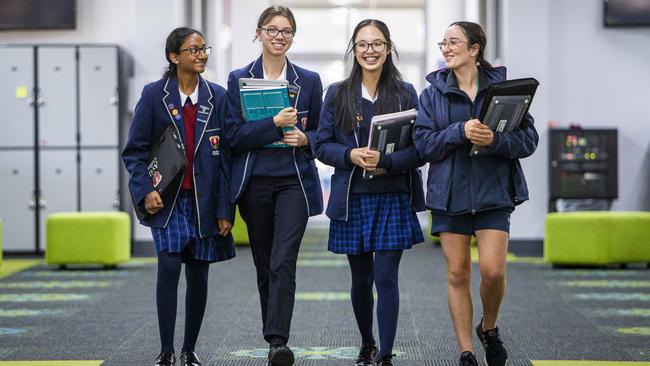
The study of the humanities will be scaled back significantly, while Indigenous histories, cultures and perspectives will be given greater prominence in a new national school curriculum that seeks to improve declining student performance.
Overall content in the Australian Curriculum, which has been under review for 12 months, has been reduced by about 20 per cent to address longstanding concerns about overcrowding.
In English, texts by Indigenous authors will be promoted, however, in a blow to advocates of phonics, the curriculum will continue to promote whole language practices for teaching reading, despite several states recently adopting a more structured, evidence-backed approach.
The proposed curriculum revisions, to be published on Thursday, also reveal a shift towards problem solving in mathematics and inquiry learning in science amid a push to have students move beyond the recall of facts to applying their knowledge to “real world situations”.
Primary students will no longer study world navigators and explorers, significant dates and sites, or celebrations and commemorations as humanities content is reduced after complaints teachers had been “overwhelmed”.
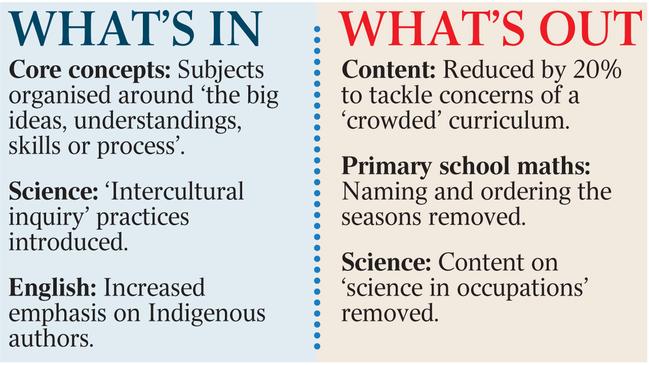
In Year 7 history, the Investigating the Ancient Past topic, which examines events across Egypt, Mesopotamia, Persia, Greece, Rome, India, China and the Maya, is to be removed and replaced by Deep Time History of Australia focusing on Indigenous history spanning back 60,000 years.
Relationships and sex education also gets a makeover, with more explicit guidance on the teaching of consent in the wake of widespread community concern about rates of sexual assault and harassment, particularly among young people.
The review, undertaken by the Australian Curriculum Assessment and Reporting Authority, based each subject around a set of “core concepts” or “big ideas”, which has become a popular premise in overseas jurisdictions.
It was ordered by the federal government in the wake of the nation’s long-term declining performance on international student tests, including the OECD’s PISA, which students last sat in 2018.
Australia, once a top-10 nation in maths, has fallen to 29th place, while reading and science scores have also taken a hit. In reading, Australia was once ranked in the top five, and most recently ranked in 16th place.
ACARA chairwoman Belinda Robinson said the curriculum review process had sought to ensure “high expectations” for Australian students.
“Our students deserve our best efforts and these revisions come at a time when our students’ performance in recent international assessments demonstrates that we need to raise the bar and set challenging but achievable standards,” she said.
The review – the first since the Australian Curriculum was endorsed in its current form in 2015 – is expected to attract keen interest and robust debate, with different jurisdictions and sectors endorsing varied approaches to teaching and learning. Some states, particularly NSW and Victoria, prefer to develop their own curriculum documents.
The new maths curriculum has already sparked division within ACARA itself, with the authority’s board understood to have twice rejected a draft that proposed to base the teaching of mathematics around core concepts that included “structures”, “approaches” and “mathematising”, with a strong focus on developing problem-solving skills.
It is not yet clear whether those core concepts have survived to the final draft.
An elevated focus on problem solving remains, however, and a new topic on computational thinking has been introduced for Years 3 to 10. According to an outline of the changes to maths, “this results in a mathematics curriculum that supports deeper conceptual understanding to make mathematical learning more meaningful, applicable and transferable to students”.
The Mathematics Education Research Group of Australasia has endorsed a “more authentic approach to mathematics learning and inquiry”, however there are ample critics concerned that a focus on problem-solving activities will come at a cost of explicit teaching and student acquisition of core knowledge.
The revised curriculum also has the potential to reignite the reading wars. While NSW has recently moved to dump practices associated with whole-language-based balanced literacy, replacing the use of predictable texts with decodable readers, from its own primary years curriculum, the Australian Curriculum will continue to support the prevailing method.
“The current Australian Curriculum currently has a strong focus on the teaching of phonics and also whole language structures and ... that’s not changed,” ACARA director of curriculum Janet Davey said.
“There are different ways to teach reading and there will be … circumstances where decodable texts will be important and other circumstance where predictable texts will be important.”
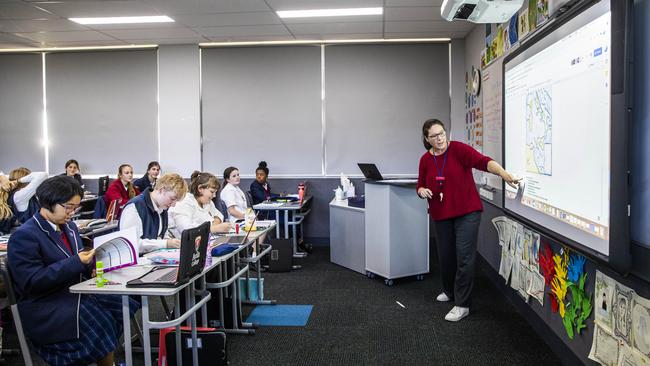
ACARA chief David de Carvalho acknowledged that the review process had sparked “robust discussion” and would continue to do so. “And that is welcome,” he said. “Curriculum … should be contented and of keen interest to us all, but in contesting our ideas, we should also ensure it is the needs of our students that are paramount.”
Mr de Carvalho, who writes about the review in The Australian today, said the curriculum was “already world-class”, with the proposed changed to make content more explicit and manageable for teachers.
And while there had been a push to elevate the role of the general capabilities in particular, including in the most recent Gonski review, Mr de Carvalho said the subject learning areas would continue to have “primacy of place in the curriculum”.
Teachers would be provided with more specific advice about which capabilities, such as critical and creative thinking, should be embedded into each subject.
And in addition to the embedding of Indigenous perspectives into English, HASS and science, there will be more examples provided on how maths teaching can be supported by contexts drawn from the Aboriginal and Torres Strait Islander Histories and Cultures cross curriculum priority.
The Australian Curriculum was last reviewed in 2014 at the request of the government. That independent review, conducted by Kevin Donnelly and Kenneth Wiltshire, attracted more than 1500 submissions. Dr Donnelly said he looked forward to seeing the draft documents.
Teachers from Avila College in Melbourne’s east were actively involved in the review process and principal Michelle Cotter said it was vital that school programs were “fit for future purpose”.
“Overcrowding of the curriculum is a constant tension for schools and teachers,” she said.
“We need to get the balance right between a strong focus on fundamental skills, while developing well-rounded young people who can contribute to the greater good and succeed in the global economy.”
ACARA is inviting feedback until July 8. It aims to have updated curriculum documents endorsed by the start of the 2022 school year.

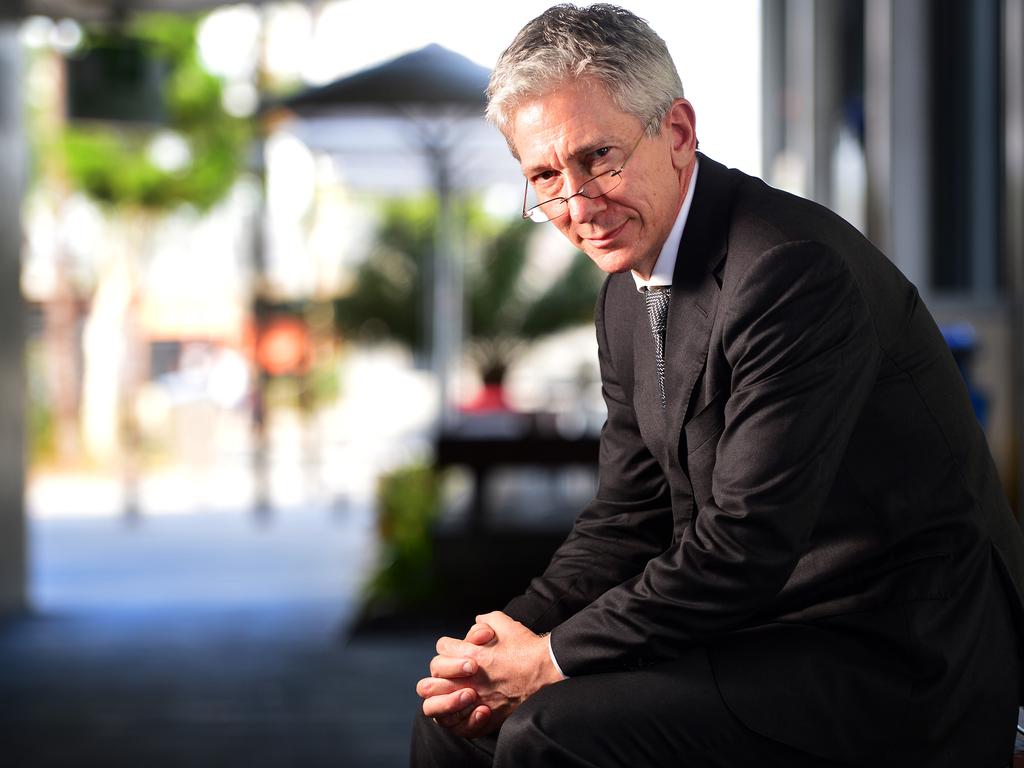
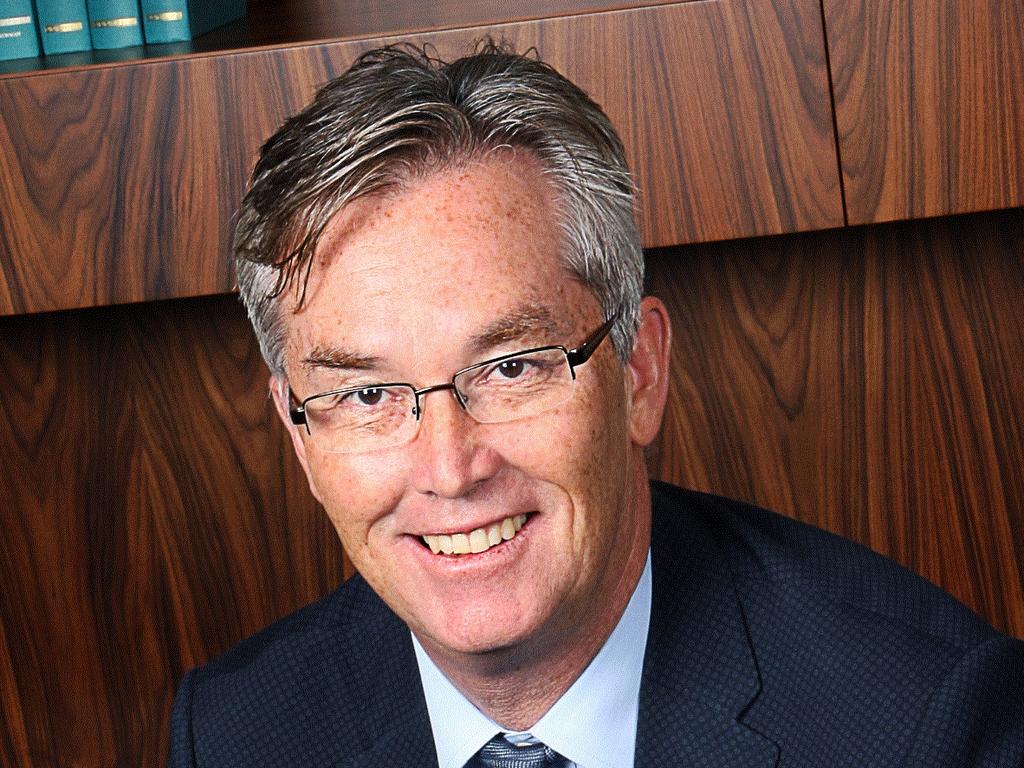



To join the conversation, please log in. Don't have an account? Register
Join the conversation, you are commenting as Logout